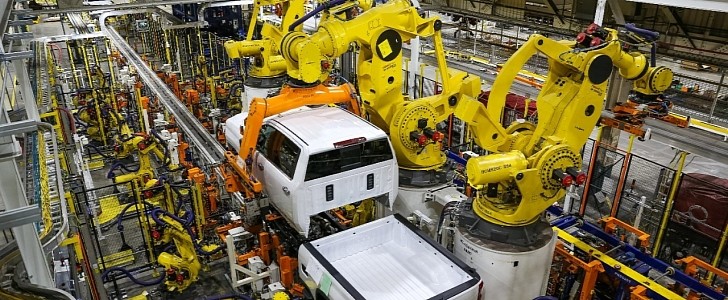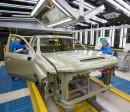Foxconn is currently the number one Apple supplier and one of the largest contract manufacturers in the world, with the company now stepping into EV manufacturing as part of various deals, including with Fisker.
Foxconn’s leading market position has made it one of the companies to watch, as pretty much everything it does happens for a reason. More often than not, this typically includes hints of various big changes planned in the short term.
In other words, Foxconn’s forecasts are most often highly accurate, and this time, the company has come up with something that’s pretty bad news for the entire automotive market.
The global chip shortage isn’t going anywhere for now, Foxconn says, with the crisis to continue at least until the second half of 2022.
The firm also expects its revenue to be impacted by the whole thing, so it’s pretty clear the company’s leadership team is preparing for the worst in the short term.
The forecast, however, aligns with other predictions released lately by industry analysts. In most cases, these analysts estimated a slight inventory easy-off in the fourth quarter of this year, followed by another shortage wave in the first months of 2022.
And this is exactly what seems to be happening right now. The production lines of large automakers, including General Motors, are currently running at full speed after several factories were closed for months. This is because the chip inventory has indeed recorded a slight recovery, in line with analysts’ expectations.
Now everybody is hoping the chip production would gradually align with the demand throughout 2022. But all these investments in chip capacity come with another risk, research firm IDC has recently warned.
Once the crisis is over, which should theoretically happen at some point in 2023, the world could end up struggling with an oversupply of chips, at which point the foundries themselves might have a hard time selling all the semiconductors they produced.
In other words, Foxconn’s forecasts are most often highly accurate, and this time, the company has come up with something that’s pretty bad news for the entire automotive market.
The global chip shortage isn’t going anywhere for now, Foxconn says, with the crisis to continue at least until the second half of 2022.
The firm also expects its revenue to be impacted by the whole thing, so it’s pretty clear the company’s leadership team is preparing for the worst in the short term.
The forecast, however, aligns with other predictions released lately by industry analysts. In most cases, these analysts estimated a slight inventory easy-off in the fourth quarter of this year, followed by another shortage wave in the first months of 2022.
And this is exactly what seems to be happening right now. The production lines of large automakers, including General Motors, are currently running at full speed after several factories were closed for months. This is because the chip inventory has indeed recorded a slight recovery, in line with analysts’ expectations.
Now everybody is hoping the chip production would gradually align with the demand throughout 2022. But all these investments in chip capacity come with another risk, research firm IDC has recently warned.
Once the crisis is over, which should theoretically happen at some point in 2023, the world could end up struggling with an oversupply of chips, at which point the foundries themselves might have a hard time selling all the semiconductors they produced.






